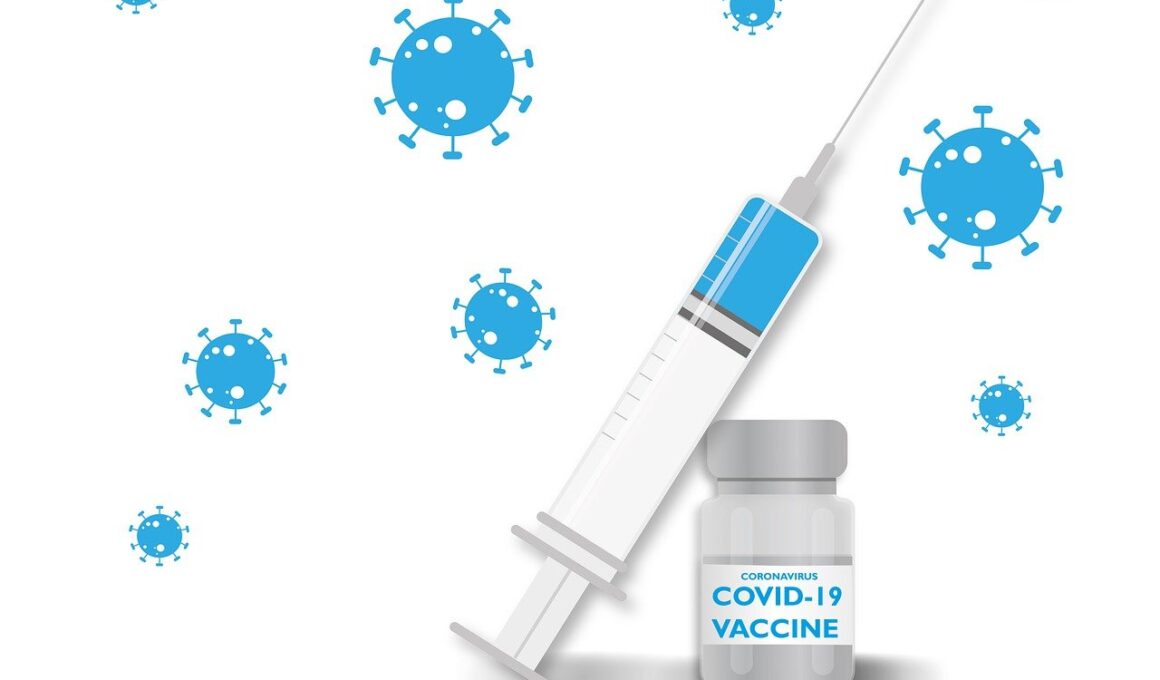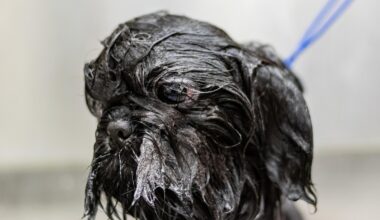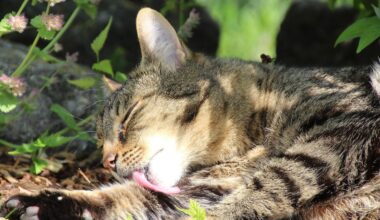Debunking Common Misconceptions About FIV Vaccination
Feline Immunodeficiency Virus (FIV) is often misunderstood, leading to various misconceptions regarding vaccination. Many pet owners dismiss the FIV vaccination due to misinformation about its effectiveness. Some believe that the vaccine can cause FIV, which is untrue; the vaccine contains the inactivated virus and is safe. It does not introduce the disease into a cat’s system. This misconception can prevent owners from protecting their cats, particularly at high risk for exposure, such as outdoor cats or those around FIV-positive felines. Over time, both cats and their owners need accurate information for making informed health decisions. It is crucial to consult with a veterinarian who can provide credible insights about FIV vaccination. Obtaining factual data will alleviate fears and misconceptions. The FIV vaccination may not guarantee immunity in every case but can improve overall health outcomes. Having your cat vaccinated is a proactive step towards prevention. Furthermore, in veterinary medicine, the prevailing consensus is that vaccination is preferable to the alternative of a disease outbreak. Owners should prioritize their cats’ health by discussing these matters with trusted sources for advice.
Understanding FIV and Its Vaccination
FIV is a contagious disease affecting cats and compromises their immune systems. Misunderstandings concerning FIV vaccination often stem from unclear medical articles and outdated information. Some people believe that if their cat lives indoors, they do not need to vaccinate against FIV. While it is true that the virus is primarily spread through bites, indoor cats are not entirely safe. Various factors can introduce exposure, including shared household space with FIV-positive cats or an unintentional escape outside. The vaccination provides a much-needed line of defense against the virus and can potentially save lives. Vaccination also helps reduce the overall occurrence of FIV in the feline population, contributing to broader public health goals. However, misconceptions about its efficacy prevent some pet owners from seeking vaccination for their pets. Even in veterinary emergencies, a veterinarian’s advice hinges on current vaccinations and health history. Understanding the importance of FIV vaccination, regardless of a cat’s living conditions, is essential for responsible pet ownership. Ensuring that your cats are vaccinated can have a lasting impact on their health as well as on the well-being of other cats.
Another common misconception surrounding FIV vaccination is the belief that it is unnecessary for older cats. Age itself does not determine a cat’s risk of exposure to FIV or its need for vaccination. Thus, all cats, regardless of age, should be considered for this important vaccine. While younger cats may be more prone to getting into fights, older cats who venture out can also be at risk. Vaccination is particularly vital for multi-cat households and shelters, where exposure risks are heightened. Failing to vaccinate older cats can adversely affect their health, leading them to develop secondary infections due to their potentially weakened immune systems. Just because a cat is not a typical outdoor explorer does not mean it can be disregarded when considering vaccinations. As cats age, their immune systems may weaken, making them especially vulnerable to infections. Owners must consult with current veterinary guidelines to secure their pets’ health. Neglecting to keep vaccinations updated can lead to significant consequences, including increased healthcare costs in the future. Spread awareness about the necessity of FIV vaccination across all age groups; advocate for your feline friends’ health.
Another widespread belief is that the FIV vaccine will provide complete immunity against the virus. As with many vaccines, this is not entirely accurate. The FIV vaccine offers a level of protection; however, it is still crucial to practice preventive measures. These include keeping cats indoors or supervised while outside and avoiding interactions with unknown cats. The FIV vaccine enhances health and could reduce infection risk but can’t guarantee complete immunity. Moreover, some owners mistakenly presume their cats can only be infected through direct combat. While biting is the most common transmission method, sexual contact and maternal transmission also account for infection. Understanding how FIV spreads strengthens the argument for a more comprehensive approach to prevent exposure. Despite the vaccination, pet owners should remain vigilant and proactive. They should foster safe social environments for their felines to thrive in. Working alongside veterinarians to assess risk factors tailored to individual cats can build better health plans. Promoting open conversations about vaccinations and preventive care not only safeguards your own pets but can also foster a safer and healthier feline community, welcoming responsible pet ownership and encouraging cat welfare on a grand scale.
Clearing Up Misunderstandings
Another misconception surrounding the FIV vaccination is the belief that it can alter or cause behavioral changes in cats. In reality, cats might display various personalities due to their individual traits and life experiences rather than any effect of vaccination. The idea that the FIV vaccine might lead to sudden personality shifts or aggression is unfounded. It is essential to discern that any changes are likely a reflection of environmental or social influences. This allows owners to focus on behavior interventions based on each cat’s needs without attributing those changes inaccurately to vaccination. Owners should monitor their cats’ behavior and work with feline behaviorists if unexpected changes occur, always seeking facts rather than baseless assumptions. Ensuring appropriate socialization and enrichment will yield a more pressing and critical impact on their cats’ temperaments. Addressing behavioral issues should occur through proper managerial practices designed to support individual aspects of each cat. Thus, debunking myths surrounding FIV vaccinations, alongside normalizing discussions with pet owners, contributes to better service within the feline community and embracing a happier life for all cats involved.
In recent years, there has been a noticeable shift toward recognizing the necessity of FIV vaccinations. As more health professionals communicate clear guidance, pet owners have begun understanding the importance of preventive measures. This has counteracted negative misconceptions in the realm of FIV. As information becomes available, prospective cat owners need to stay informed about vaccination protocols, leading to healthier, happier cats. Community-driven initiatives could further enhance awareness by offering vaccination clinics, educational resources, and outreach programs specifically dedicated to battling misinformation. Collaborating with local shelters and veterinary clinics can streamline these efforts and boost outreach to sincere owners committed to cat care. Addressing fears or worries about FIV vaccination can develop lasting trust between veterinarians and pet owners, which is integral to pet health promotion. It is of great importance to involve multi-faceted approaches in providing the community with information. Utilizing social media channels could effectively spread awareness and garner support. By creating an informed community together, misconceptions can mitigate, ensuring that more felines receive the vaccinations they need and ultimately leading to a healthier feline population overall.
Ultimately, dispelling misconceptions about FIV vaccinations cultivates a healthier future for feline companions. When pet owners are well-informed, they advocate for the health enhancement of their feline friends. Shared knowledge within the community reduces uncertainty about FIV vaccination safety as well, boosting participation in vaccination programs while fostering compassion for cats in need. Reaching out to the veterinary community to form partnerships or establish outreach efforts can enable better discussions surrounding vaccinations. By being vocal about FIV challenges faced by pet owners, professionals can provide clarity, establishing real, effective strategies against the disease. Owning a cat is a responsibility that extends beyond just companionship; it means ensuring their health and well-being. Pet owners must be guided through these decisions by qualified professionals who can communicate vital information effectively. Engaging in these conversations not only solidifies trust within their veterinary relationships but also strengthens the overall health of feline populations. Emphasizing the significance of FIV vaccinations encourages socially responsible ownership and encourages pet owners to prioritize feline care. These actions contribute to a future where all cats are provided the opportunity to lead healthy and fulfilling lives, free from the risks of FIV.
,


